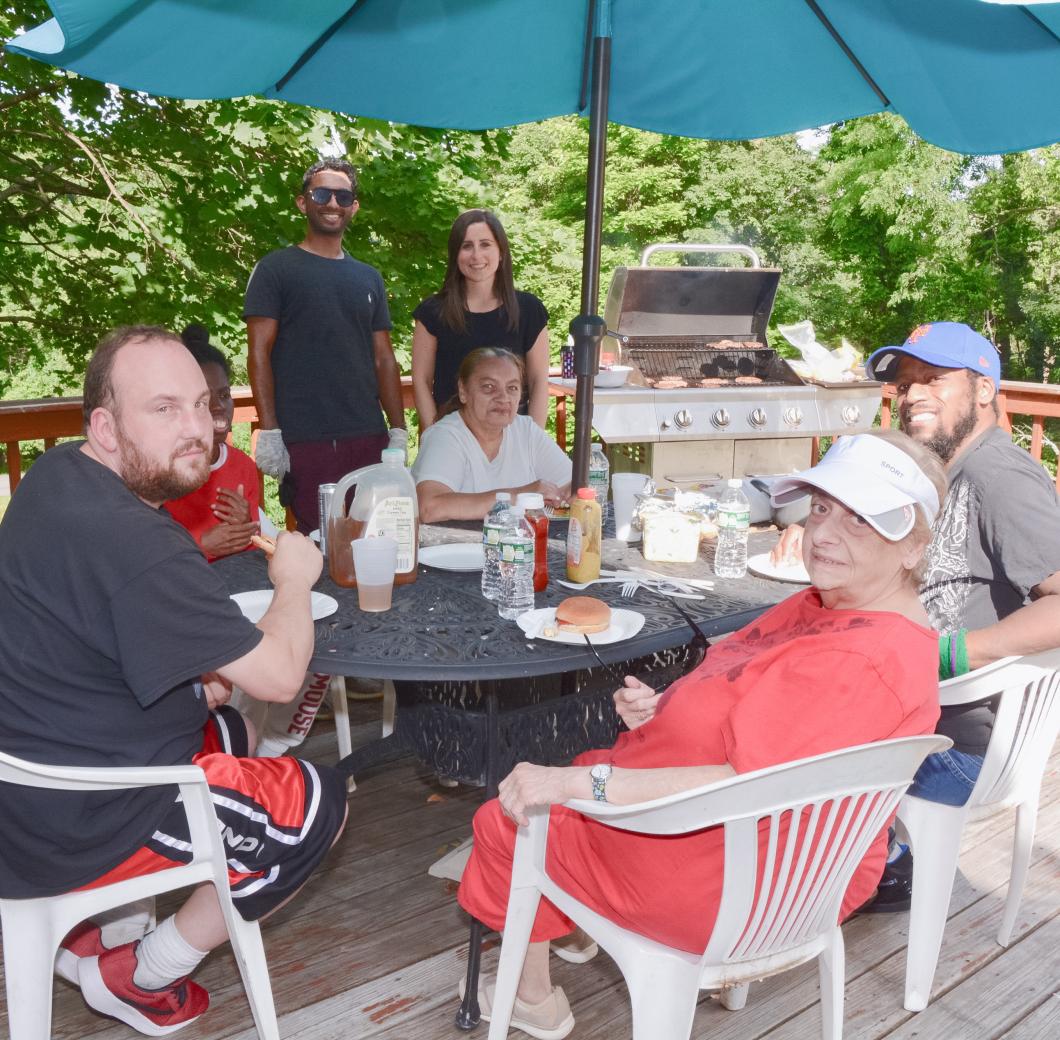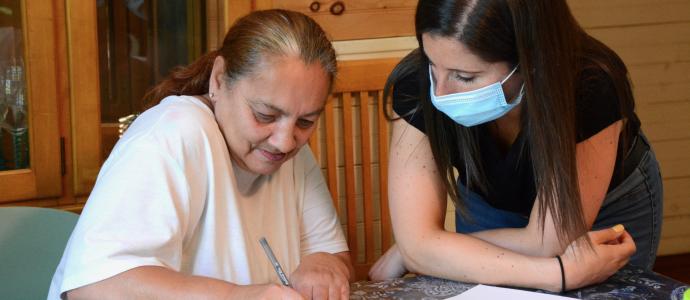Jamie Stein, a Supervisor at YAI’s 5 Alice Drive residence, has been with the agency for six years. She understands firsthand the Direct Support Professional (DSP) workforce crisis and laid out the problem, one that is damaging to morale and staff mental health: “The industry has always had a high turnover rate, but during COVID-19 it has gotten especially bad. Staff see how short-staffed we are and they feel pressured to work overtime and avoid taking days off.” She added that intellectual and developmental disability (I/DD) service providers, and the people they support, are at heightened risk of contracting COVID-19, and wages, paid out by the State government, have stagnated for years.
In April 2017, the American Network of Community Options and Resources (ANCOR) published a report on the DSP workforce crisis. At the time, ANCOR highlighted wages that are too low to make a good living, poor benefits, and a lack of appreciation by the public, among other issues. Now, nearly two years into the COVID-19 pandemic, the workforce crisis has plunged to new lows, with 93% of I/DD providers facing a drop in DSP applications and 70% reporting senior staff covering multiple shifts a day.

“Wages are the top concern among staff” said Stein. “We’re doing a lot more than just taking care of people we support. We’re working very closely with them, very hands-on, and if everybody could see what we do to support people they would understand we’re underpaid.” In New York State, the Office for People with Developmental Disabilities (OPWDD) administers payments for services predominantly through the State’s Medicaid program. Wages for DSPs through these payment rates are kept at or near minimum wage, which, outside the five boroughs, can be lower than $15 per hour.
The United States Senate voted for a budget resolution on August 12 to consider spending $3.5 trillion on infrastructure, with $400 billion for Home and Community Based Services (HCBS). That means that the federal government could soon be providing $400 billion for services for people with I/DD, funding that could not come sooner for a field experiencing a workforce crisis.
The federal government is expected to debate the $3.5 trillion spending package into the winter of 2021, by which the total amount, and the constituent funding streams, could shrink, change, or be erased entirely. Senate Democrats will need 50 votes to pass the spending via a process called reconciliation, meaning even one Senator could derail the whole bill. While moderates are concerned about the amount of spending, Senator Maggie Hassan (D-NH) has come out in support of the $400 billion in HCBS funding, a signal the funding has a chance of making it through the fall.
The $400 billion from the federal government could include funding through an enhanced Federal Medical Assistance Percentage (FMAP), a mechanism by which the federal government increases matching funds for state Medicaid programs. If passed, this funding could lead to worker retention and performance bonuses, capital improvements to program locations, and, over a span of five-to-ten years, an increase in wages – something that has not gone above minimum wage in New York State for more than ten years.
According to the Human Services Research Institute, 41.5% of DSPs are people of color. This makes the wage issue a racial justice issue, with many advocates asking the State why a job where almost half of the workers are people of color is set at such a low wage. Turnover, shortages, and pressure to perform among staff hurt the people they support, too. “We form bonds with the people we support and earn their trust. When staff leave, the people we support ask us, ‘Why did they leave? I really liked them, and I would like them back,’" said Stein. Turnover among staff makes it difficult for the people they support to feel safe in their homes, and difficult for new staff to settle into the work.
YAI has mobilized to engage federal legislators, taking meetings with US Senate Majority Leader Chuck Schumer (D-NY), US House Energy and Commerce Committee Chair Frank Pallone (D-NY), and the entire New York State House delegation, demanding support for federal HCBS funding. Staff, people receiving services, and family members are encouraged to take an active role in this advocacy, with online tools to allow for quick emails and phone calls to federal representatives. The agency-wide mobilization campaign could generate tens of thousands of calls and emails, pressuring legislators, while YAI pursues other measures to support workers and alleviate staff shortages. These measures include new hire bonuses, targeted wage increases, worker appreciation, and more. Though the agency is limited by federal and state funding, all hands are on deck to tackle the workforce crisis.
“Whatever happens, it is crucial the federal government hear from staff themselves,” said Stein. “My staff work extremely hard and take a lot of pride in our work. If only everybody could see that and what we do to support people.”
Take a minute to send a letter to Congress by visiting www.yai.org/advocacy

